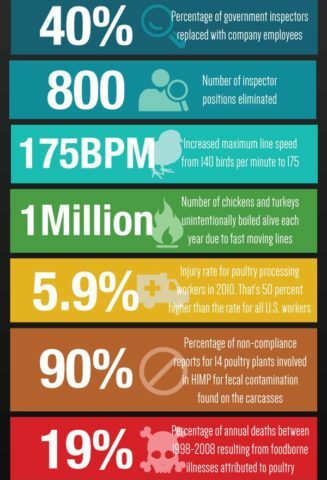

In most of the country the weather is finally getting warmer and the imagery of baby chickens and pastel eggs surround us – but yellow fuzzy chicks aren’t just a symbol for spring and Easter. They’re also part of the $38 billion poultry industry and a controversial proposal by the USDA to privatize poultry inspection.
In 2012, the USDA announced a proposal to expand a pilot program known as “HACCP-based Inspection Models Project” (or HIMP for short) that allows the poultry industry to reject government inspectors and allow company employees to police themselves. That’s right: The fox is literally guarding the hen house.
Obviously this is a big deal, so we created an infographic you can share about the 7 things you should know about the USDA’s plan to privatize poultry inspection. When you click on the image you will learn more about what you can do to speak out about this urgent issue.


When Californians elected Democratic supermajorities in the state Assembly and Senate in 2012, many expected to see a new era marked by progressive policies on everything from the economy to the environment to education. While some change has come, it’s not the kind most voters envisioned when they left the polling booth two years ago.
A central reason, as Pulitzer Prize-winning investigative reporter Gary Cohn reveals in this first article of a new series, is the emergence of the Corporate Democrat, who is not a traditional moderate but an enabler of big developers, gambling concerns, insurance companies and other interests. With the continuing decline of the Republican Party in the nation’s largest state, the Corporate Democrat promises to shape California politics and policies for years to come.[divider]
Marin County is one of California’s most liberal regions and, with its iconic redwoods and stunning coastline, it is also a power center for environmental activism.
» Read more about: In Plain Sight: The Rise of Corporate Democrats in California »
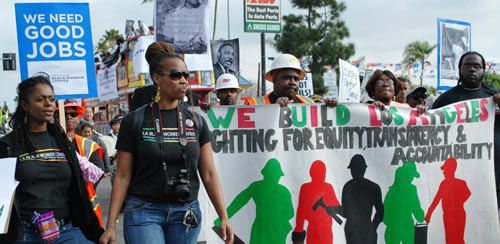


A recent report from the Los Angeles Black Worker Center addresses challenges facing African American workers, while offering strategies for combating unemployment and low wages. Black Worker Congress Blueprint for Addressing the Jobs Crisis focuses on information gathered from the Black Workers Rising for Justice, Jobs and Dignity congress, a gathering of workers and leaders of community and labor groups, held last September. The event, which occurred alongside the AFL-CIO national convention, gave African Americans a platform to voice concerns about labor and economic issues. Some of the report’s key findings:
The report cites some alarming statistics about the unemployment rates among blacks and whites from Steven Pitts, an economist from the University of California Berkeley Labor Center. Pitts claims that the unemployment rate for whites during the height of the recession remained below the nine percent jobless rate that African Americans faced before the recession even began.


 You’d think that that public television would support public education, but you’d be wrong. The Public Broadcasting System (PBS) has gotten in bed with the billionaires and conservatives who want to privatize our public schools. PBS has nary a word to say about the big money — from folks like the Walton family (Walmart), Microsoft founder Bill Gates, Eli Broad, business titan and former New York mayor Michael Bloomberg, media mogul Rupert Murdoch, Joel Klein (former NYC schools chancellor and now a Murdoch employee), and their ilk — that has been funding the attack on public schools and teachers unions. They’ve donated big bucks to advocacy groups, think tanks, and candidates for school boards who echo their party line.
You’d think that that public television would support public education, but you’d be wrong. The Public Broadcasting System (PBS) has gotten in bed with the billionaires and conservatives who want to privatize our public schools. PBS has nary a word to say about the big money — from folks like the Walton family (Walmart), Microsoft founder Bill Gates, Eli Broad, business titan and former New York mayor Michael Bloomberg, media mogul Rupert Murdoch, Joel Klein (former NYC schools chancellor and now a Murdoch employee), and their ilk — that has been funding the attack on public schools and teachers unions. They’ve donated big bucks to advocacy groups, think tanks, and candidates for school boards who echo their party line.
PBS and its local stations have fallen all over themselves to promote Waiting for Superman, a documentary film that could easily been mistaken for a commercial on behalf of charter schools.



In 1895, Eugene V. Debs — the patriotic labor leader, socialist, and five-time presidential candidate — observed: “There is something wrong in this country; the judicial nets are so adjusted as to catch the minnows and let the whales slip through.”
In that regard, our justice system hasn’t changed that much in the 119 years since Debs uttered those words. We spend many more resources policing and prosecuting crime in the streets than crime in the suites, even though corporate crime is much more costly in terms of death, injury and disease.
If you need evidence of this double standard, look no farther than how the federal government has “punished” General Motors for failure to provide timely information about mishandling its recall of about 2.5 million cars with a defective ignition switches that the company has linked to 13 deaths.
On March 4, the National Highway Traffic Safety Administration insisted that GM answers 107 questions about why the company waited until this February to begin its recall when it knew about the problem as early as 2001.



You know the old joke. It gets tailored for whatever the despised group of the moment is:
Q: What do you call 10,000 [lawyers/politicians/whatever] at the bottom of the ocean?
A: A good start.
I was thinking about that recently with regard to Wall Street and bankers. The popular (and populist) rage that has been rising against Wall Street seems to be reaching new levels. According to Gallup, Americans rank the “honesty and ethical standards” of bankers as “low” or “very low” at a rate about three times higher than we did in the mid-1980s. (The vast majority of that increase came after the most recent financial meltdown.) And politicians – even Republicans – now regularly use Wall Street as an easy punching bag for cheap political points.
It’s hard to argue with the sentiment. Those people did ruin a minimally well-functioning economy.
» Read more about: Study: Wall Street Banks Overcharge L.A. »


Skopje, Macedonia might seem a long way from Los Angeles, but for the 2,000 professional musicians who earn their living recording the film scores for Hollywood’s big movie studios, the Balkan capital — and the bleak future for L.A. movie musicians that it might represent — seems to be getting closer every day.
In at least one way, that future has already arrived in the form of Lionsgate’s Draft Day and the Ivan Reitman film’s nonunion score. Starring Kevin Costner, the movie tells an all-American story of a fictionalized general manager of the lowly Cleveland Browns and his efforts to save Cleveland football on NFL draft day by trading for the number one player pick.
Less all-American is the story behind the recording of Draft Day’s music, which was reportedly piped via the Internet to a Hollywood studio and the film’s composer, John Debney,
» Read more about: ‘Draft Day’ in Macedonia: Hollywood Musicians Under Siege »


Like thousands of family child care providers across Los Angeles County, Ramona Duran’s day begins at a frantic pace. While most Angelenos are still asleep, Ramona is up before sunrise preparing for the first family to arrive at 5 a.m. at the Long Beach day care center she operates. She checks on the status of a healthy breakfast cooking in the kitchen and makes some last minute arrangements of the play area. Ramona’s Day Care is not a baby-sitting service; it is the center of her community and a labor of love. What she loves most is taking care of the “little ones” and helping families.
“I help the family to go to school, to go to work [and] go to the doctor,” Ramona says. She truly enables families to thrive.
Unfortunately, thousands of women who serve our youngest and most at-risk children struggle to make ends meet — family child care providers earn less than $20,000 per year.



Today, Mayor Garcetti will deliver his first State of the City address to outline his goals and vision for the coming year. One can expect a focus on his “back to basics” message of creating a stronger economy and more efficient and effective city government. As he delineates those “basics” and how he hopes to achieve them and pay for them, the Mayor needs to make sure he is taking a full accounting of what’s happening in his own City Hall backyard – ensuring that the fulfillment of his vision doesn’t come at the expense of our streets, communities or workers. An item that requires his immediate attention is the draining of hundreds of millions of dollars from city taxpayers each year.
It turns out that the city of Los Angeles spends more than $200 million on annual fees to Wall Street banks and other financial institutions. This eye-popping figure is detailed in a new research report released by Fix LA,
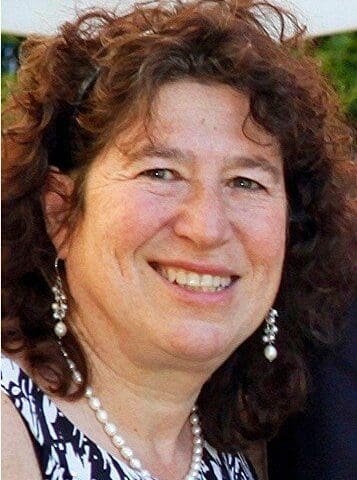

Everyone is talking about living wages, but few have actually written the laws that stand behind them. Margo Feinberg has done just that. As an activist labor attorney for more than 30 years, she has played a critical part in shaping groundbreaking legislation, including a worker retention law to ease the plight of workers in industries that change management frequently, as well as a landmark superstore ordinance to protect neighborhoods from the blight that often follows in the wake of a Walmart. Currently, Feinberg is involved in a campaign to secure sick days for nonunion grocery store workers, many of whom have no such benefit. In recognition of her accomplishments and commitment to economic justice and working families, she will be honored at the Los Angeles Alliance for a New Economy’s Women for a New Los Angeles Luncheon on May 9. We spoke to Ms. Feinberg about her life and work,
» Read more about: Giving Workers a Voice: An Interview With Margo Feinberg »



About seven years ago I was at my first meeting of an education advisory board, staring out the window at the panoramic view of the Santa Monica Mountains, when a fellow sidled up and began making casual conversation. We exchanged a few pleasantries, when he leaned in to tell me in a confidential hush that he had a $34,000 tax problem. Taken aback, I first thought, How odd that he should share such a thing — and figured maybe he wanted sympathy.
Then it occurred to me that his tax problem was more than half what I had made altogether that year, so I said, “If you have that big a problem, you must have the resources to deal with it.” He backed away and never spoke to me again at that meeting, or at any thereafter.
I suppose that makes sense. He assumed I don’t like taxes the way he dislikes them.
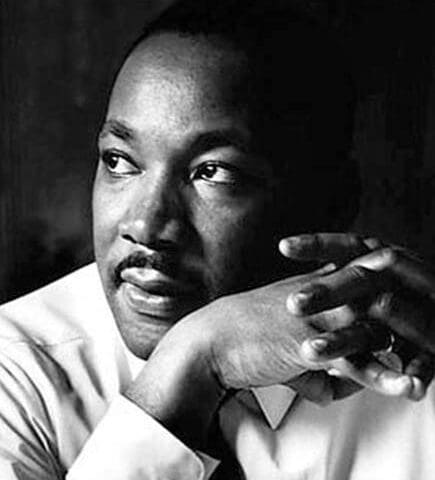

 Most Americans today know that Reverend Martin Luther King Jr. was killed 46 years ago in Memphis, Tennessee. But fewer know why he was there.
Most Americans today know that Reverend Martin Luther King Jr. was killed 46 years ago in Memphis, Tennessee. But fewer know why he was there.
King went to Memphis to support African American garbage workers, who were on strike to protest unsafe conditions, abusive white supervisors, and low wages — and to gain recognition for their union. Their picket signs relayed a simple but profound message: “I Am A Man.”
If he were still alive, King would surely join the growing campaigns to unionize and improve pay and working conditions for janitors, security guards, hotel workers, hospital employees, farmworkers, grocery employees, and others who earn poverty-level wages. He might disrupt Walmart stockholder meetings to demand that the company pay employees a living wage, join fast-food workers in their quest for decent pay, and urge consumers to boycott the Gap, Walmart and other companies until they stop manufacturing their products in overseas sweatshops.
» Read more about: MLK’s Last Campaign Was for Workers’ Rights »
Gone but certainly never forgotten, Pete Seeger’s life and music will stand front and center this Saturday afternoon as the Ash Grove Foundation honors him with a hoedown on Wilshire. The lineup features a mix of 10-minute musical tributes, personal recollections and spoken word. Guests will include local blues demigod Bernie Pearl, singer Claudia Lennear (seen in the documentary Twenty Feet From Stardom) and civil rights movement protest singer Len Chandler. (Grammy-winning singer Ben Harper, ex-Blaster Dave Alvin, Chicano rockers Quetzal and others are unconfirmed invited artists.)
If the music isn’t enough to draw you in, City of Quartz author Mike Davis will also participate in the proceedings, as well as poet-filmmaker S. Pearl Sharp and people’s lawyer Art Goldberg – there’s even talk of his sister Jackie appearing, too. See you there at the First Unitarian Church’s Fritchman Hall, 2936 W. Eighth St.;
» Read more about: Pete Seeger: A Tribute to His Music and Legacy »



As the saying goes, it takes a village. And when corporations spend vast resources to gain control of public services, it takes a village of smart, savvy and nimble people and organizations to beat them back. That’s exactly what happened in Arizona this week.
Last Friday, Arizona House Appropriations Chairman John Kavanagh snuck $900,000 into the state budget earmarked for GEO Group, the nation’s second largest private prison company. That amount was above and beyond the $45 million GEO already rakes in from Arizona taxpayers. Interestingly, the Arizona Department of Corrections did not request the increase. According to the Arizona Republic, GEO’s lobbyists worked directly with Kavanagh, who, when asked to justify the earmark, said simply that GEO “wants to get more money.”
Private prison critics quickly sprang into action. The American Friends Service Committee and Human Rights Center helped lead a strong coalition that included the American Civil Liberties Union,
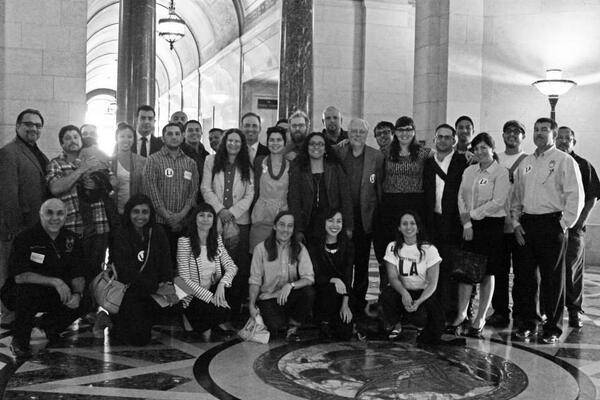

On Tuesday — April Fools’ Day no less — Los Angeles’ City Council nearly unanimously approved the Zero Waste LA Franchise System, which would make it the first and largest city nationally to adopt a robust plan to move towards Zero Waste. The Zero Waste LA Franchise System, under the direction of the City of Los Angeles’ Bureau of Sanitation, will transform the antiquated waste and recycling system that currently serves apartment dwellers and businesses. In its place will emerge an innovative model for the nation. This new system will carve the city into 11 waste service zones intended to boost recycling and provide strong customer service – a similar success found in the city’s single-family waste and recycling programs.
The Zero Waste LA franchise plan specifically requires trash-hauling companies to bid for exclusive contracts to operate in the 11 waste service zones. This will help the city to meet its Zero Waste goals,
» Read more about: Los Angeles City Council Boldly Approves Zero Waste LA Plan »



We’ve written on more than one occasion here about the travesty that is the National Collegiate Athletic Association (NCAA) and its treatment of big-time college athletes. So obviously we take great pleasure in the ruling last week, made by a regional director of the National Labor Relations Board (NLRB), that said football players at Northwestern University are employees and ordered an election for those employees to decide if they want to be members of the College Athletes Players Association (CAPA).
The ruling itself is one the feds can be proud of, properly reducing the question of employee status to its core issues—do the players perform a service for money, subject to the control of the person paying them the money?
With football players, the answers are pretty clear. Their coaches require them to sign a contract, make them work 60-70 hours some weeks, control their lives down to the most minute detail and in exchange give them various forms of compensation,
» Read more about: Of Football and the Limits of Labor Law »
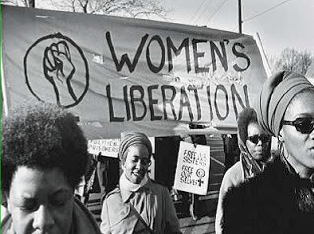
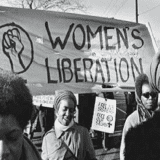
 The civil rights movement of the 1960s is now iconic. Who would speak out against its aims? And the farm workers are finally getting their due as Cesar Chavez and the power of the organization he led are being recalled in film and literature. But who speaks up for the women’s liberation movement? In popular culture, its activists were usually portrayed as self-centered, bra-burning,* man-hating New Yorkers.
The civil rights movement of the 1960s is now iconic. Who would speak out against its aims? And the farm workers are finally getting their due as Cesar Chavez and the power of the organization he led are being recalled in film and literature. But who speaks up for the women’s liberation movement? In popular culture, its activists were usually portrayed as self-centered, bra-burning,* man-hating New Yorkers.
To create an historic record of what really happened in the women’s movement, and to rescue it from ridicule and misconceptions, Boston University recently organized a conference titled, “A Revolutionary Moment: Women’s Liberation in the Late 1960s and Early 1970s.” The gathering drew more than 600 people — about two-thirds women activists and academics of that certain age, and one-third younger women and men interested in getting the history right.
In the opening conference session feminist historian Sara Evans explained that the spark that lit women’s liberation came from the other movements of the 1960s,



Working families know that making ends meet is not easy. Low and stagnant wages cannot cover the ever-increasing cost of basic expenses, leaving workers and consumers constantly scraping the bottom of the barrel. Nearly half of all Americans lack the incomes they need to be secure, according to research by Wider Opportunities for Women (WOW).
In Los Angeles, these challenges have inspired a new proposal to give workers in the city’s largest hotels a raise to $15.37 an hour. Across the country there is a growing national movement to raise the federal hourly minimum wage to $10.10.
Renewed attention to issues of economic insecurity and income inequality provide us an opportunity to ask an important fundamental question: what do working families really need to get by?
WOW answers this question by crunching the numbers. Our Basic Economic Security Tables™ measures the incomes that California’s working families need by determining the true cost of households’ basic expenses – such as food,



Two and a half years after the Occupy Movement jolted the country, America is once again abuzz with talk about poverty and inequality. Of course, along with a heightened focus on the problem come lots of ideas for fixing it. Some are smart, others are not, but nearly all of them share one thing in common: They are complicated.
The status quo “solution” isn’t complicated – at least on paper. It’s the one proposed by former Reagan official Herbert Meyer, who, on his website The Cure for Poverty, offers a three-word remedy: the free market.
Meyer, who worked at the CIA, may have been too busy warding off the enemy to notice that market forces have enjoyed one of the most unfettered periods in recent American history, even as poverty and inequality have risen inexorably. But he is surely onto something with his one-step prescription.
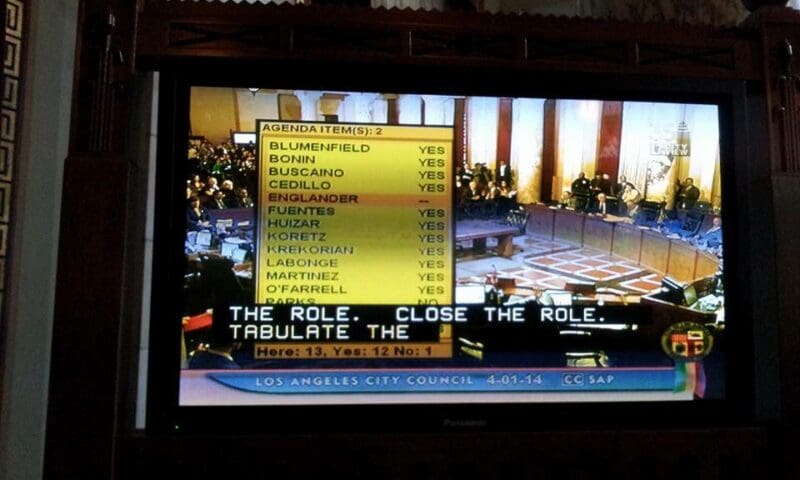

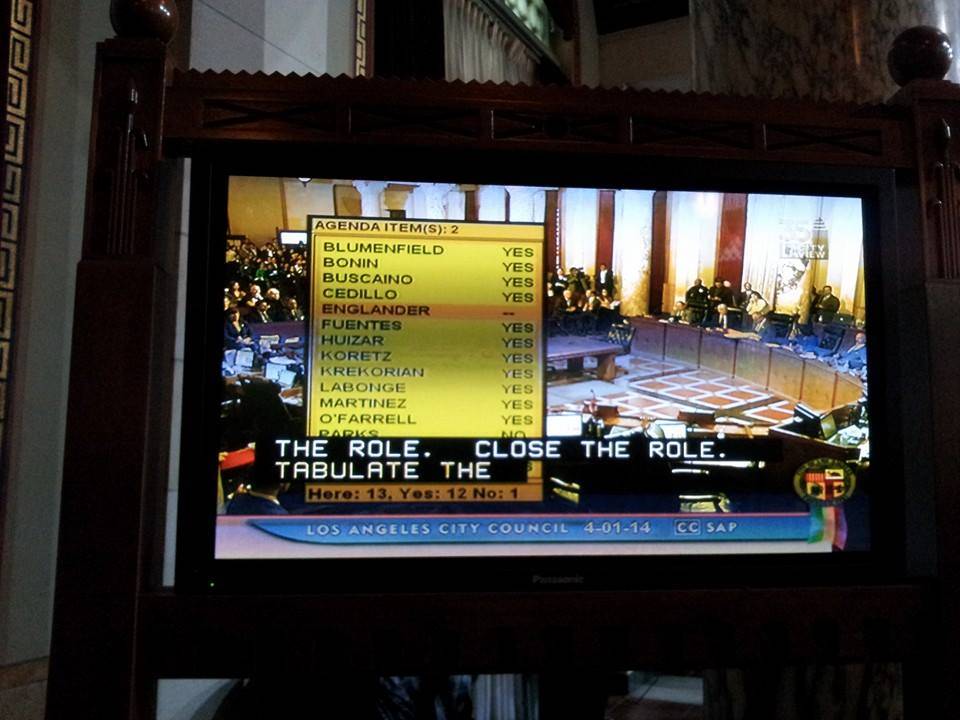
The movement to make Los Angeles the country’s largest city to employ an exclusive franchise system for hauling its commercial and multi-family waste drew tantalizingly close to completion today, as the City Council voted 12-1 to replace the current Byzantine hodgepodge of trash pickup routes servicing businesses and apartment buildings with a completely different model. The historic vote took place this morning, with Councilman Bernard Parks providing the lone dissenting vote. Because the vote was not unanimous, a final vote must take place April 8.
Although the City of L.A.’s Bureau of Sanitation provides hauling service for houses and four-unit apartment complexes, a wild frontier system characterizes the remaining commercial and residential pickups, resulting in fleets of trash trucks, whose owners often pay their workers low wages, crisscrossing the city on uncoordinated schedules. The consequence has been extra wear and tear on roads, and increased air pollution.
The new system will divide the city into 11 pickup zones,
» Read more about: Historic Victory for Zero-Waste Campaign »